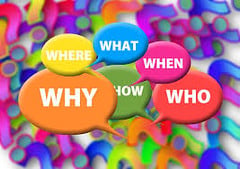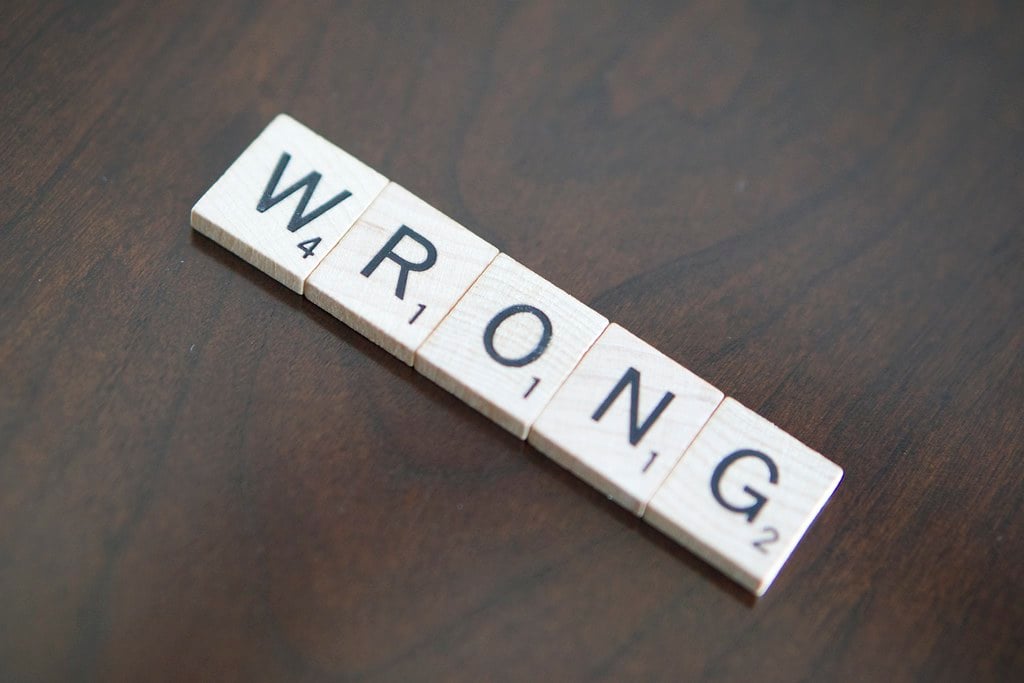Microagressions and Why You Should Avoid Using Them
Our environment has a huge influence on our behaviour, and sometimes our biases can be so subtle, we may not even realise they are there until someone else points them out.
These behaviours are often categorised as microaggressions—“a subtle but offensive comment or action directed at a minority or other nondominant group that is often unintentional or unconsciously reinforces a stereotype” (Dictionary.com).
Read on to find out what this term means precisely, how it differs from a simple mistake and some examples of microaggression language you may be using without even realising it.

Photo via Flickr
What are microaggressions?
Put a little more plainly, microaggressions are offensive interactions that fuel stereotypes. But there is more to it than that; what makes a microaggression especially dangerous is that, on the surface, it is not as in-your-face aggressive as, say, a racial slur. A microaggression can be a subtle dig; an insult dressed up in nice clothing. so that when someone points it out, it is easy for the speaker to brush it off as an unintended offense.
While a microaggression and a mistake can sometimes be the same thing, a microaggression truly points to underlying discrimination and bias when a person continues to repeat the microaggress, rather than improving their behaviour.
Still not sure what we mean? Here are 4 common microaggressions you may have heard others use, or even used yourself without realising how harmful they can be:
1. “You are very eloquent / speak good English”
This is one of the most frequently used microaggressions and a source of constant frustration to those subjected to it. These sorts of double-edged ‘compliments’ are based on assumptions related to things like someone’s skin colour or their name. By comparison, this is not the same as complimenting someone on their English after learning they have learned to speak it as a second language.
When you tell a Black, Indigienous and Person of Colour (BIPOC) individual that they are eloquent, you are feeding the stereotype that they are not as highly educated, or do not have a firm grasp of the language. The same issue applies when telling someone they speak English well. In a nation as diverse as the United Kingdom, we should be past the point where we automatically assume most non-white individuals are immigrants with little to no English-speaking skills. Avoid this pitfall and keep your thoughts on a BIPOC’s use of language to yourself.

Photo via Flickr
2. Misspelling or mispronouncing names
Immigrants to countries like the UK or US are often faced with the dilemma of whether to adopt Anglicised names. Do you stay grounded to your cultural roots or sacrifice a piece of yourself in order to make it easier for others to say your name? After all, having a more British-sounding name can often be the difference between getting more opportunities and struggling to be taken seriously. For example, a recent study showed that professors at a university were much more likely to respond to e-mails from a student named Mark than a student named Xian—even if both students were Chinese. As a result of this unfortunate phenomenon, it is not uncommon for immigrant parents to give their children more Anglicised names, simply because it can make life easier. This is why it is so important to acknowledge and make a true effort to learn, spell and pronounce people’s names correctly, regardless of where they are from or how tricky it may seem at first. When you do not, it gives the impression that the person in question is not worth the time and effort, and that their identity and culture is not important.
3. Sorry, wrong person
While science has proved that most of us struggle to differentiate between the faces of people of a different race, there can be a fine line between an honest mistake and a racist microaggression. When someone from a majority group confuses, say, two colleagues of Asian descent, it points to a lack of exposure to other races beyond their own. And while some of this can be explained away by science, if the issue occurs multiple times, it points to an unwillingness to correct the mistake and, therefore, a certain racial bias. Constantly confusing individuals from an underrepresented group—whether it be by looks or mixing up their names—shows that you do not value them as individuals, but see them as part of a larger collective, not worth your time or effort to know on a personal level.

Photo via Flickr
4. You look __, so you must also speak __.
Assuming that someone who looks Chinese must be bilingual in English and Mandarin can seem like an innocent enough mistake, or even a compliment, but this is actually a rather serious microaggression. It is not uncommon for POC to be called upon as in-house translators in the workplace—often due to misplaced assumptions based on their appearance. Look at it this way: if you are white, would you want people to automatically assume you also speak German or French? And even if you did, wouldn’t it bother you to always be looked at as the resident bilingual expert based solely on the colour of your skin? The same applies to POC. Avoid this microaggression and take on the task of becoming bilingual yourself by learning another language instead! This will ease the burden on your POC colleagues and give you an opportunity to grow and learn more about the world through a foreign language.
Used incorrectly, language can be a negative tool, however, it is also a powerful means for overcoming racial biases. Giving a voice to underrepresented groups through acronyms such as BIPOC and LGBTQA are just a few examples of the positive way language can influence how we view each other. Learning a new language is also a great way to widen your perspective and appreciate other cultures and groups. Our excellent native-speaking tutors can tailor-make classes to suit your current goals and learning needs. So, drop us a quick enquiry to learn more about the courses we have to offer.
